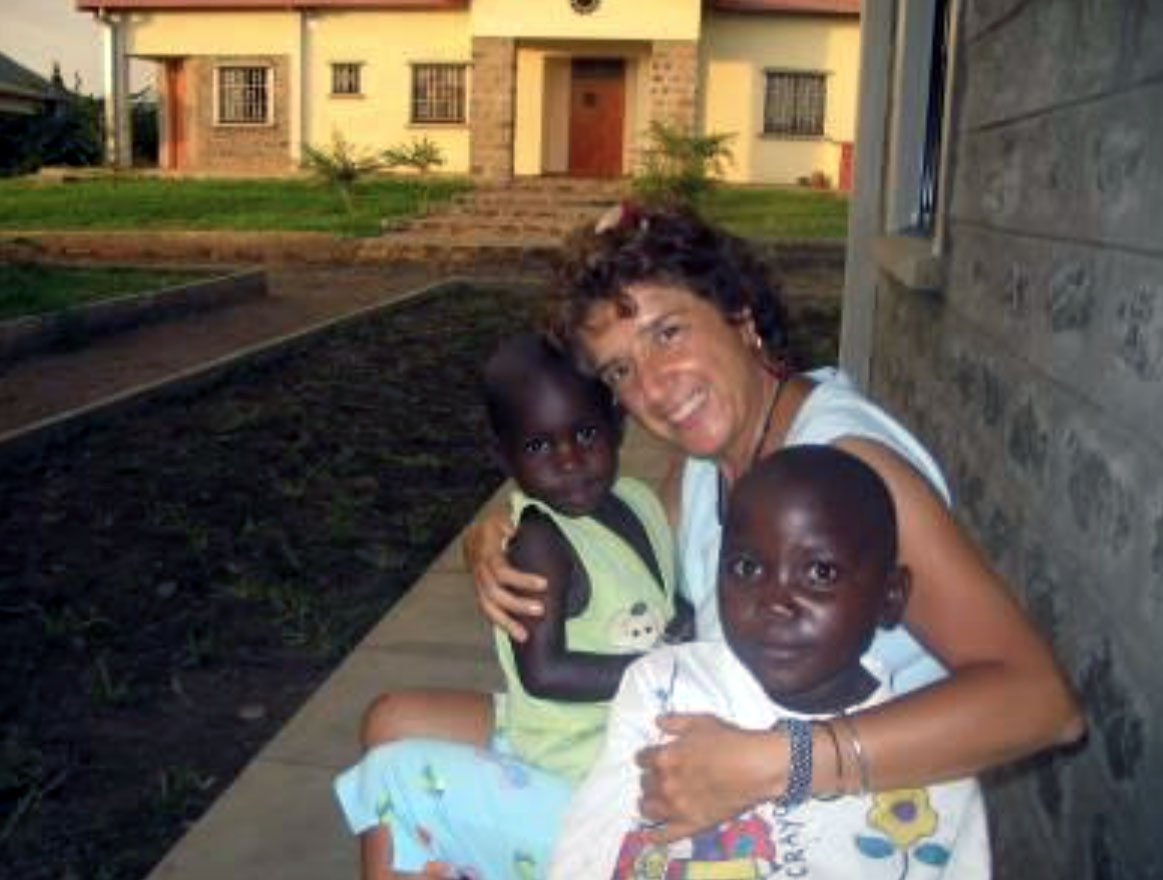Here I am at St. Camillus Hospital in Karungu (Kenya), on the shores of Lake Victoria in this place forgotten by men but perhaps not by God where, everything is exaggerated both in the incredible beauty of an amazing nature and in the expression of poverty and disease.
After my first experience of a month in July last year, I decided that I absolutely had to go back to settle a score outstanding: to see Africa not as a tourist but as a doctor. This place had bewitched me and I had to fully understand what called me here in this warm and mysterious land: something that did not appear but screamed inside as a categorical imperative. So I asked for six months’ leave from my work as a cardiologist specialist and in early March I left for Africa.
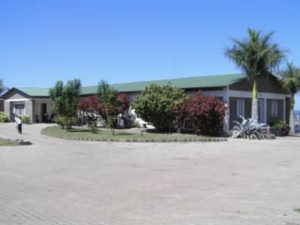
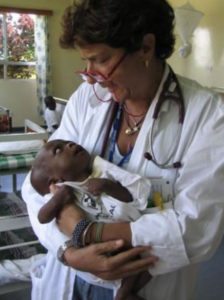
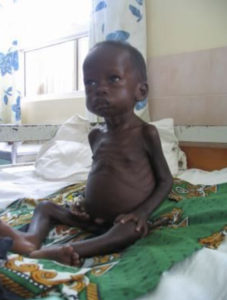
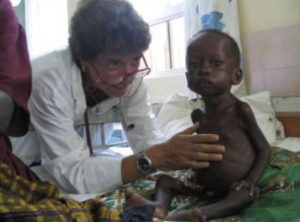
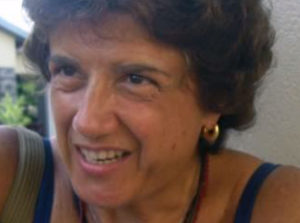

The first months were very difficult from several points of view, I found myself being a “handyman” in a country where there is everything as a pathology and practically nothing as medicine, so I started studying, setting aside all, or almost , my medical knowledge here practically useless and I learned humility: knowing that I don’t know, wanting but not being able, constantly confronting myself with my inadequacy of knowledge and means. The language was the other problem to be faced, I knew little more than school English and here doctors and nurses speak either English or dhluo (local language), and very often I did not understand anything at all, so even before orienting myself on the pathology of patients and to know the appropriate and available therapy, I had to understand what they were saying. Not to mention the diagnostic difficulties (the tools available are limited) and therapeutic (sometimes even essential drugs are lacking!).
Thus began my adventure, entrusted to a general medicine ward, officially invested with a very difficult role to manage even emotionally: the average age of our patients is 25-30 years, the weight of 35-40kg (but I have seen up to 23kg!), HIV reigns and in these people deprived of immune defenses, any disease becomes difficult to treat, impossible to cure. Here malaria often presents itself as cerebral malaria, tuberculosis eats up most of the lungs and beyond, and infections, for us often trivial and easy to treat, compete to see who does more damage and devastates more organs or brings more Quickly to death.
I swallow saliva and tears in helplessly witnessing AIDS manifestation in the form of a tumor that transforms the skin into a color palette with buboes and foul-smelling secretions that grow like mushrooms, or listening to screams of Rose 23, who after giving birth to another dead child, decided to walk the protective path of madness (aided in this by an HIV encephalitis), or in looking at the now lifeless eyes also of hope of Leonidas 40 years old (and 30kg!), Devoured by AIDS, who for months waited to start treatment with drugs that would have given her at least the illusion of defeating the virus and seeing her 3 children grow up, but drugs were not available, and now that I am, it’s too late for her.
How am I ever going to forget Michael’s 35-year-old eyes, obviously also HIV positive, who are calling for help while the water that has invaded his lungs is suffocating him despite all of our treatments made vain by repeated tuberculosis infections and not only, and with a thread of his voice he says “I trust you”?
Malaria, AIDS and various infections also devour the blood and cause forms of anemia normally considered incompatible with life, the availability of blood bags is limited, there are few donors and often cannot donate it because they are also HIV positive. Quinine and drip are never denied to anyone and they flow in hard to find veins of people with incoercible vomiting or devastating diarrhea, already consumed by malnutrition. I learned to do an ultrasound, albeit approximately, just enough to orient myself in the mare magnum of the abdomen, an inexhaustible source of spleens and livers that here reach frightening dimensions, contributing to this the intoxications from “herbs” with which the sick from local practitioners because this “medicine” costs little but on the other hand kills a lot.
Often I am offered cases considered to be of cardiological competence because an enlarged heart emerges from the chest X-ray, but just as often the diagnosis is due to the damage that tuberculosis does which affects any organ including the heart, sometimes instead, especially in children, under there is a congenital heart disease at a too advanced stage and in any case inoperable due to the too high cost of the intervention that could only be done in Nairobi, 8-10 hours by car from here! In a week I saw 2 kids die without being able to do absolutely nothing for them except a nice diagnosis !!!
Here polygamy exists as a fact and thanks to it I have witnessed strange things (2 wives of the same husbands who give birth in the hospital on the same day) or dramatic ones (a wife poisoned the son born of her husband’s second wife with a herbicide, resulting in … a seven-day-old child who died after terrible agony).
But if all this is true, it is also true that I can never forget Karen’s smile with which she welcomed me one morning after a week of coma caused by one of the many “banal” infections or Amos to whom we returned the strength to play ball after an infection that had damaged his heart or Alice who was going to be taken away by malaria, but for a battle won (which should be the rule), too many are the lost ones!
One thing left me perplexed from the first day: the total absence of tears, here we do not cry out of emotion or pain, not even in the face of death, everything is accepted as inevitable, they do not ask, wait and accept any “sentence “Almost with indifference or unconsciousness.
How many memories to store together with the conflicting feelings, anger and helplessness, the urgency to do but not be able to do it well, to want (but not to be able!) To give a chance to these people who know how to die but have not yet learned to live, without a past and with an uncertain future, in an uncomfortable present that does not grant hope, in a painful and timeless land where nothing has changed forever and perhaps forever. I could go on indefinitely to try to put Africa or my experience of it in pages and still I would not have said anything, but I only know that I love this land immeasurably and that in these eyes as black as ebony, deep as the sea and empty of tears and I’m finding the courage to live. Its beauty lies in being so wild and indomitable. I would like it a little less wild and more tameable, perhaps less beautiful but more alive or at least with more possibilities for life, even if it would no longer be my Africa. One thing left me perplexed from day one: the total absence of tears, here we do not cry either out of emotion or pain, not even in the face of death, everything is accepted as inevitable, they do not ask, wait and welcome any “sentence” almost with indifference or unconsciousness.
How many memories to store together to the conflicting sensations, to anger and helplessness, to the urgency to do but not being able to do it well, to wanting (but not being able!) to give a chance to these people who know how to die but have not yet learned to live, without a past and with an uncertain future, in an uncomfortable present that does not grant hope, in a painful and timeless land where nothing has changed forever and perhaps forever.
I could go on forever to try to put Africa or my experience of it in pages and again I would not have said anything, but I only know that I love this land immeasurably and that in these eyes as black as ebony, as deep as the sea and empty of tears, I am finding the courage to live. Its beauty lies in being so wild and indomitable. I would like it a little less wild and more tameable, perhaps less beautiful but more alive or at least with a better chance of life, even if it would no longer be my Africa.
Antonella Levi Minzi

